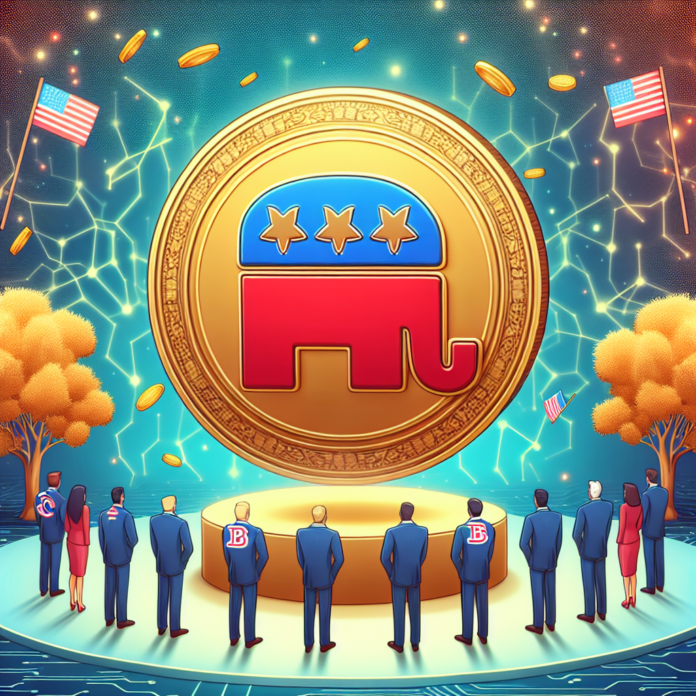Republicans Embraced Cryptocurrency Prior to Trump’s Involvement and Here’s the Reason
Republicans Initially Embraced Cryptocurrency Before Trump’s Involvement: An Analysis
The cryptocurrency landscape has undergone significant changes in recent years, with various political figures, including former President Donald Trump, taking notice of its potential. However, the Republican Party’s fascination with digital currencies predates Trump’s engagement with the topic. This article explores the reasons behind the GOP’s early enthusiasm for cryptocurrency and the implications of Trump’s subsequent interest.
The GOP’s Early Adoption of Cryptocurrency
In the early days of Bitcoin and other digital currencies, many Republicans recognized the technology’s promise for economic growth and innovation. The principles of decentralization and limited government intervention resonated strongly with the party’s core values. Proponents within the GOP viewed cryptocurrency as a means to empower individuals financially, bypassing traditional banking systems that they often criticized for being overly regulated.
Moreover, the rise of blockchain technology offered Republicans a new frontier for promoting free market principles. The potential for smart contracts and decentralized finance (DeFi) appealed to those advocating for a more competitive economic landscape free from bureaucratic constraints. This early enthusiasm laid the groundwork for a burgeoning interest in the sector among conservative lawmakers and constituents.
Trump’s Entry into the Cryptocurrency Arena
Former President Trump’s foray into cryptocurrency discussions marked a pivotal moment in the political narrative surrounding digital currencies. His public statements about Bitcoin and other cryptocurrencies often reflected skepticism, labeling them as a threat to the U.S. dollar. However, his comments also ignited a broader debate within the Republican Party, prompting discussions about the future of cryptocurrency regulation and its role in the economy.
Trump’s involvement in the crypto conversation has also attracted attention from mainstream media and financial institutions, further propelling the visibility of digital currencies. This newfound attention has led to a mix of support and criticism from within the party, creating a diverse spectrum of opinions on the matter.
The Broader Impact of Cryptocurrency on Republican Policies
As cryptocurrency continues to evolve, so too does the Republican Party’s approach to regulation and innovation in this space. Some Republican lawmakers have advocated for a more favorable regulatory environment, arguing that it could attract investment and stimulate economic growth. They see digital currencies as a way to foster entrepreneurship and technological advancement, aligning with the party’s pro-business agenda.
Conversely, there are factions within the party that express concern about the risks associated with cryptocurrencies, including potential fraud and market volatility. This internal debate reflects the broader national conversation about how to balance innovation with consumer protection in the rapidly changing financial landscape.
Conclusion
The Republican Party’s initial enthusiasm for cryptocurrency highlights a complex relationship with emerging technologies and economic paradigms. While Trump’s entry into the conversation has brought additional scrutiny and attention to the topic, the foundation laid by earlier GOP advocates remains significant. As the cryptocurrency market continues to mature, it will be crucial for Republican leaders to navigate the challenges and opportunities presented by this transformative financial technology. The outcome of these discussions will shape not only the party’s stance on digital currencies but also the broader economic landscape in the years to come.


